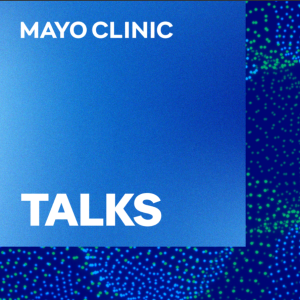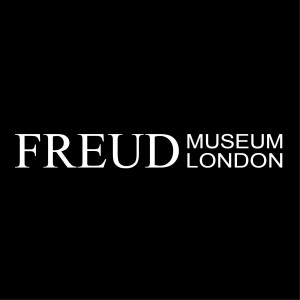In The Not-Two, Lorenzo Chiesa examines the treatment of logic and God in Lacan’s later work.
Chiesa draws for the most part from Lacan’s Seminars of the early 1970s, as they revolve around the axiom "There is no sexual relationship." Chiesa provides both a close reading of Lacan’s effort to formalize sexual difference as incompleteness and an assessment of its broader implications for philosophical realism and materialism.
Chiesa argues that "There is no sexual relationship" is for Lacan empirically and historically circumscribed by psychoanalysis, yet self-evident in our everyday lives. Lacan believed that we have sex because we love, and that love is a desire to be One in face of the absence of the sexual relationship. Love presupposes a real "not-two." The not-two condenses the idea that our love and sex lives are dictated by the impossibility of fusing man’s contradictory being with the heteros of woman as a fundamentally uncountable Other. Sexual liaisons are sustained by a transcendental logic, the so-called phallic function that attempts to overcome this impossibility.
Chiesa also focuses on Lacan’s critical dialogue with modern science and formal logic, as well as his dismantling of sexuality as considered by mainstream biological discourse. Developing a new logic of sexuation based on incompleteness requires the relinquishing of any alleged logos of life and any teleological evolution.
For Lacan, the truth of incompleteness as approached psychoanalytically through sexuality would allow us to go further in debunking traditional onto-theology and replace it with a “para-ontology” yet to be developed. Given the truth of incompleteness, Chiesa asks, can we think such a truth in itself without turning incompleteness into another truth about truth, that is, into yet another figure of God as absolute being?
Lorenzo Chiesa is a philosopher who has published extensively on psychoanalysis. His works in this field include Subjectivity and Otherness: A Philosophical Reading of Lacan (MIT Press, 2007); Lacan and Philosophy: The New Generation (Re.press, 2014); The Not-Two: Logic and God in Lacan (MIT Press, 2016); and The Virtual Point of Freedom (Northwestern University Press, 2016). Since 2014, he has been Visiting Professor at the European University at Saint Petersburg and at the Freud’s Dream Museum of the same city. Previously, he was Professor of Modern European Thought at the University of Kent, where he founded and directed the Centre for Critical Thought.
More Episodes
CONFERENCE: Freud and Eros: Love, Lust and Longing
 2015-05-28
2015-05-28
'The Dialectic of Sex: The Case for Feminist Revolution' - Shulamith Firestone
 2015-04-30
2015-04-30
Psychoanalysis, Trauma and Military Mental Health - Part 4
 2015-04-10
2015-04-10
Psychoanalysis, Trauma and Military Mental Health - Part 3
 2015-04-10
2015-04-10
Psychoanalysis, Trauma and Military Mental Health - Part 2
 2015-04-10
2015-04-10
Psychoanalysis, Trauma and Military Mental Health - Part 1
 2015-04-10
2015-04-10
Love: A Guide for Amateurs
 2015-03-08
2015-03-08
Paper with Sacred Signs: Love Letters of Sigmund Freud
 2015-03-05
2015-03-05
The Rest is Silence
 2015-03-02
2015-03-02
Carl Gustav Jung: Avant-Garde Conservative, texts and contexts
 2015-01-26
2015-01-26
Being Good: Aichhorn and Anna
 2014-12-12
2014-12-12
Mildly Erotic Verse
 2014-12-05
2014-12-05
Animal Madness: How anxious dogs, compulsive parrots, and elephants in recovery help us to understand ourselves
 2014-11-01
2014-11-01
Freud and Eros: Love, Lust and Longing - Curator's talk: Dr Janine Burke
 2014-10-31
2014-10-31
Know Your Enemy: Images of the Enemy in Propaganda in the Twentieth Century - David Welch
 2014-10-31
2014-10-31
The Fog of Peace: Gabrielle Rifkind and Giandomenico Picco in conversation with John McCarthy
 2014-10-31
2014-10-31
Shell Shock, Emotional Resilience and the Cultural Memory of the First World War: A Literary Perspective
 2014-10-28
2014-10-28
Michelangelo's Moses-Idol: "Renaissance" as Return of the Repressed
 2014-10-28
2014-10-28
Psychoanalytic Poetry Festival 2015: Memory and Memorialisation
 2014-10-28
2014-10-28
Psychoanalytic Poetry Festival 2015: Memory and Memorialisation
 2014-10-28
2014-10-28
Create your
podcast in
minutes
- Full-featured podcast site
- Unlimited storage and bandwidth
- Comprehensive podcast stats
- Distribute to Apple Podcasts, Spotify, and more
- Make money with your podcast
It is Free
You may also like

Mayo Clinic Talks


The Saad Truth with Dr. Saad


Positive Thinking Mind


ŒIL pour YEUX, DENT pour MÂCHOIRE 😎


The Jordan B. Peterson Podcast

- Privacy Policy
- Cookie Policy
- Terms of Use
- Consent Preferences
- Copyright © 2015-2024 Podbean.com



 iOS
iOS Android
Android